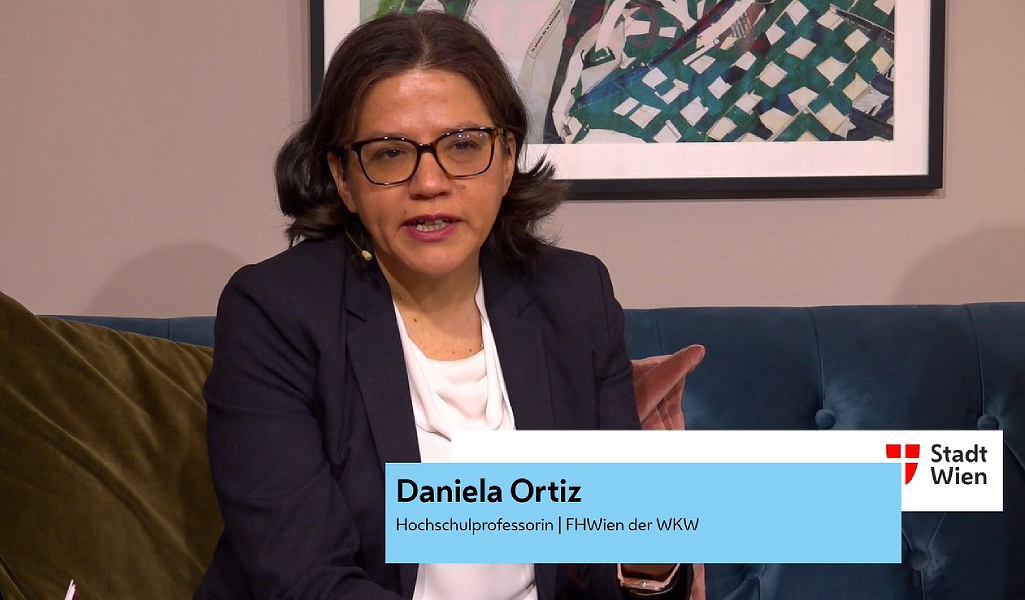As part of the 8th Vienna Innovation Conference under the title “Surviving in Times of Change – Transformation with Innovation”, Daniela Ortiz, Academic Head of the Institute for Business Ethics and Sustainable Strategy (IBES) at FHWien der WKW, discussed together with Gerlinde Macho, MP2 IT-Solutions, and Bettina Resl, Sanofi, the topic ” Without Redundancy no Resilience: Is Just-in-Time Over?”
The current crises such as Corona, supply chain bottlenecks, developments in raw material prices show that companies need to become increasingly resilient to change. Daniela Ortiz pointed out that we have been shaken up by the crises: “But the crises will go and a newly developed mindset will stay.” This relates to current ways of working (e.g. new work-time models) as well as a more sustainable economic system (e.g. circular economy) and the ongoing digitalization.
For Bettina Resl, the important thing here is not to become dependent on the effects of digital transformation, but to take advantage of the effects for the people affected. Because digitization evokes fears in many people. That is why it is relevant to “take everyone along”. In the pharmaceutical industry, this happens through exchange with other branches. For example, Resl reported on experiences with the Formula 1 racing team McLaren regarding efficiency enhancement. In this case, pit stop strategies served as an illustration on how to react quickly to dynamic changes. The necessary resilience and redundancy as a systematic basis is not only relevant for IT, as Gerlinde Macho explained. Other areas and departments such as Human Resources are also affected. Appropriate plans and processes provide security in case of an incident and inform about next steps and appropriate contact persons.
But efficiency cannot be the only aspect here. Innovation and development also need spaces to trigger future processes. In addition to digital transformation, these are mainly ecologically justifiable processes. These are currently strongly influenced by public opinion and political regulations, as Daniela Ortiz reported. For example, the EU’s “Building back better” program aims to learn the right lessons from the current crises.
The economy and society will thus initiate relevant changes to emerge stronger from the crises. In addition, Ortiz asks whether the way we provide products today will still be up to date in three, five or ten years. It is important to develop innovative capabilities today and to maintain openness. Companies must not wait for crises and regulations to knock on their door. The necessary innovation can only come about through cooperation and collaboration. An interaction of many components and people – just like a Formula 1 Pit Stop: An efficient reaction to a dynamic development, which leads to better cooperation through fostered collegiality.

